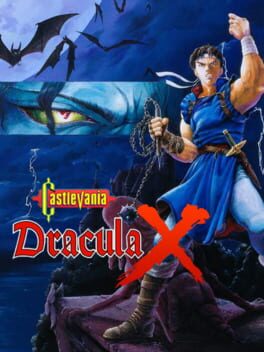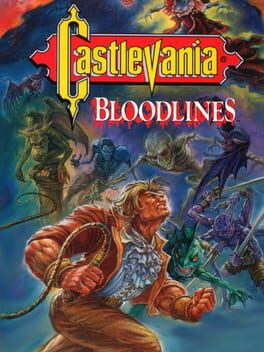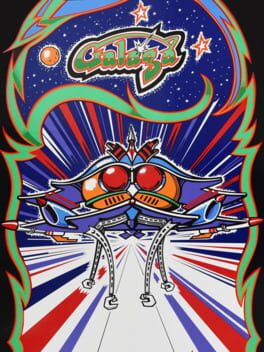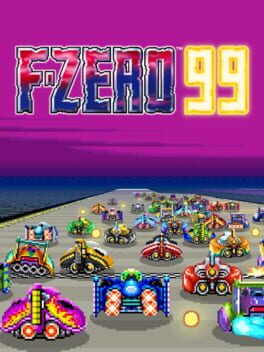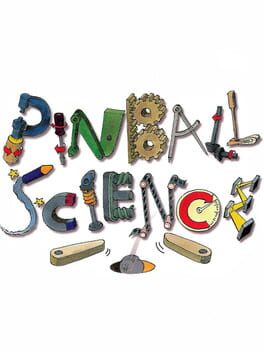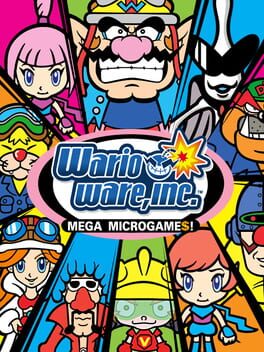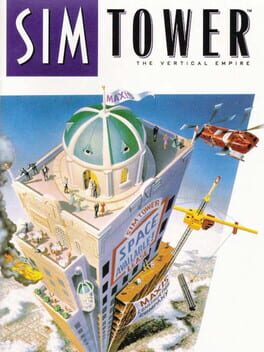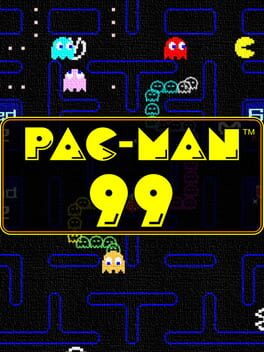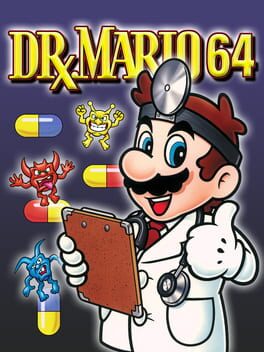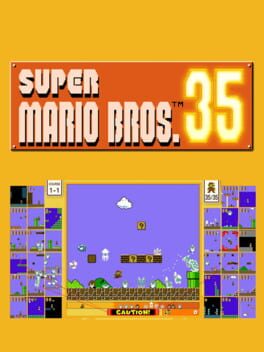DetectiveEma
I mostly liked Super Castlevania IV, and I also mostly liked Castlevania: Bloodlines. I thought to myself, "You know what? I know it's not as well-regarded as other games, but why don't I give Dracula X a try?"
Hoo boy.
Okay, let's be clear. While I haven't played it yet myself, I've seen other people play Rondo of Blood and know what this game was inevitably going to struggle to live up to. And there are a lot of ways where this game does a genuinely respectable job trying to adapt stuff from that game to the SNES's capabilities, with a lot of sprites carried over verbatim and a decent conversion of the music. I don't necessarily mind that level designs and layouts were changed, at least in theory, and some of the new visuals look decent.
But too many things were changed for the worse. Richter's handling is miserably stiff. Level layouts feel tedious and bland. The difficulty level is high, but not interestingly so - and you don't even have Maria as an easy option, since she isn't playable here. The requirements for the best ending are pointlessly obtuse, and don't feel as thoughtful as Rondo's secrets. And I have some strong words for whoever designed that Dracula fight.
In other words, you are looking at an adaptation of Rondo that, out of choice or necessity, came out in pretty rough shape. I wouldn't call it a bad game, but I would call it a frustrating one, because the things Dracula X did a decent job converting or inventing get completely overshadowed by the problems.
Hoo boy.
Okay, let's be clear. While I haven't played it yet myself, I've seen other people play Rondo of Blood and know what this game was inevitably going to struggle to live up to. And there are a lot of ways where this game does a genuinely respectable job trying to adapt stuff from that game to the SNES's capabilities, with a lot of sprites carried over verbatim and a decent conversion of the music. I don't necessarily mind that level designs and layouts were changed, at least in theory, and some of the new visuals look decent.
But too many things were changed for the worse. Richter's handling is miserably stiff. Level layouts feel tedious and bland. The difficulty level is high, but not interestingly so - and you don't even have Maria as an easy option, since she isn't playable here. The requirements for the best ending are pointlessly obtuse, and don't feel as thoughtful as Rondo's secrets. And I have some strong words for whoever designed that Dracula fight.
In other words, you are looking at an adaptation of Rondo that, out of choice or necessity, came out in pretty rough shape. I wouldn't call it a bad game, but I would call it a frustrating one, because the things Dracula X did a decent job converting or inventing get completely overshadowed by the problems.
Bloodlines makes for a good foil to Super Castlevania IV, as I like both games a similar amount but for different reasons. Both games are classicvanias which give the option to attack in more varied ways, with Simon's directional whip control and Eric's spear moves. Both have interesting graphical setpieces, which play on their respective consoles' graphical capabilities.
I think Bloodlines outdoes IV in player options, with the choice of two characters with distinct playstyles (although I do wish you could switch mid-playthrough). Bloodlines is also a bit more forgiving on difficulty, especially with all the invincibility on Eric's spear jump. The duo here aren't quite as stiff in control as IV's Simon, and have a more forgiving hitbox compared to Simon's big frame. Bloodlines also does a good job taking liberties with the established series conventions of the time, most notably through its 20th century setting.
On the other hand, Bloodlines has a less consistent aesthetic and atmosphere than IV. Of course, that's partially the point, as it spans across WWI-era Europe instead of being confined to Dracula's Castle, but in gaining variety it loses out on stylistic and thematic cohesion. Bloodlines also has several areas with relatively plain or repetitive level design. Musically, Bloodlines marks the debut of Michiru Yamane to the franchise; while I like several of her pieces for this game, I don't think the Genesis sound is as compatible with her compositions as it could be.
Anyway, this is a solid game in the classicvania style, with all the pros and only a few cons of its variety and experimentation.
I think Bloodlines outdoes IV in player options, with the choice of two characters with distinct playstyles (although I do wish you could switch mid-playthrough). Bloodlines is also a bit more forgiving on difficulty, especially with all the invincibility on Eric's spear jump. The duo here aren't quite as stiff in control as IV's Simon, and have a more forgiving hitbox compared to Simon's big frame. Bloodlines also does a good job taking liberties with the established series conventions of the time, most notably through its 20th century setting.
On the other hand, Bloodlines has a less consistent aesthetic and atmosphere than IV. Of course, that's partially the point, as it spans across WWI-era Europe instead of being confined to Dracula's Castle, but in gaining variety it loses out on stylistic and thematic cohesion. Bloodlines also has several areas with relatively plain or repetitive level design. Musically, Bloodlines marks the debut of Michiru Yamane to the franchise; while I like several of her pieces for this game, I don't think the Genesis sound is as compatible with her compositions as it could be.
Anyway, this is a solid game in the classicvania style, with all the pros and only a few cons of its variety and experimentation.
1981
I may have more personal nostalgia and history when it comes to Galaxian, but Galaga is an excellent followup and does just about everything you could hope for in a shooter from 1981. Even as a player who isn't especially invested in this genre, I could immediately see the appeal of Galaga and what made it so iconic after only a few minutes in front of the arcade cabinet. Smart stuff.
2023
Conceptually, I think F-Zero 99 makes more sense than Super Mario Bros. 35 and Pac-Man 99. Despite the visual style coming from the SNES original, mechanically this game pulls in the combined health/boost meter from F-Zero X, which makes for an intense, high-speed, high-stakes race where the 99 players all jockey for space on the same racetrack.
Ultimately, though, I have to confess that this game did not win me over especially well, either. It's unavoidably living in the shadow of Tetris 99, and unfortunately for this game, I'm far more fond of playing Tetris than F-Zero.
Ultimately, though, I have to confess that this game did not win me over especially well, either. It's unavoidably living in the shadow of Tetris 99, and unfortunately for this game, I'm far more fond of playing Tetris than F-Zero.
2008
The first WarioWare had a lot of good sub-games they could've released as DSiWare. Fortunately, unlike Paper Airplane Chase, this is one of them. Or rather, two of them, because you get both variants of Pyoro in this pack, slightly extended. Pyoro is a simple and fun game that makes for a great little romp in small bursts, but with more appealing gameplay and music than Paper Airplane Chase. On its own, Pyoro's still not going to hold your attention in the long run, but it's a game worth spending a few minutes on from time to time.
2008
The first WarioWare had a lot of good sub-games they could've released as DSiWare. This isn't one of them.
1994
A masterfully crafted game with impeccable atmosphere and animation. For many players, Super Metroid is the holy grail of search action games. I personally can't go quite that far, but I still greatly enjoyed my time with it.
It's funny. In writing this review, part of me wanted to write up a pros and cons kind of listing like I often do for game reviews, but amusingly, it's easier for me to come up with the cons because there's comparatively few. There's so much this game does right that I could sit here gushing over the parts I liked, but it'd be a relatively long list. So I suppose the way forward is to describe the handful of minor negatives, and leave it to you, the reader, to understand that most of the game is phenomenal and I'm not listing out all the details of that. You can probably read a dozen other glowing reviews to get those parts.
Alright, so: the negatives. The map screen is a welcome addition compared to map-less games like the original Metroid, but it's not as useful as it could be. Connections between rooms are not marked, so you won't always be able to tell from the map if two adjacent rooms actually connect or if you have to go around somehow. There's dots on the map to indicate pickups, but a) not all pickups are marked, and b) the dot doesn't go away after you collect the pickup, making them less than useful for keeping track of your item collection progress.
Save rooms don't heal you. This is an aggravation compared to later games in the genre (including other Metroid games), where they almost universally do heal you. No, in Super Metroid, if you want to fully heal, outside of a small number of dedicated recharge rooms, you have to painstakingly shoot respawning enemies for health drops. Perhaps this doesn't bother veteran players who either don't get hit much or don't mind being lower on HP, but for newcomers who are trying to be cautious with their HP, this is unnecessarily tedious.
I don't think Super Metroid is the best search action game; I think Castlevania: Symphony of the Night has it beat in that regard. But it's still an excellent game with outstanding presentation, and one that I think every curious player owes it to themselves to at least try.
It's funny. In writing this review, part of me wanted to write up a pros and cons kind of listing like I often do for game reviews, but amusingly, it's easier for me to come up with the cons because there's comparatively few. There's so much this game does right that I could sit here gushing over the parts I liked, but it'd be a relatively long list. So I suppose the way forward is to describe the handful of minor negatives, and leave it to you, the reader, to understand that most of the game is phenomenal and I'm not listing out all the details of that. You can probably read a dozen other glowing reviews to get those parts.
Alright, so: the negatives. The map screen is a welcome addition compared to map-less games like the original Metroid, but it's not as useful as it could be. Connections between rooms are not marked, so you won't always be able to tell from the map if two adjacent rooms actually connect or if you have to go around somehow. There's dots on the map to indicate pickups, but a) not all pickups are marked, and b) the dot doesn't go away after you collect the pickup, making them less than useful for keeping track of your item collection progress.
Save rooms don't heal you. This is an aggravation compared to later games in the genre (including other Metroid games), where they almost universally do heal you. No, in Super Metroid, if you want to fully heal, outside of a small number of dedicated recharge rooms, you have to painstakingly shoot respawning enemies for health drops. Perhaps this doesn't bother veteran players who either don't get hit much or don't mind being lower on HP, but for newcomers who are trying to be cautious with their HP, this is unnecessarily tedious.
I don't think Super Metroid is the best search action game; I think Castlevania: Symphony of the Night has it beat in that regard. But it's still an excellent game with outstanding presentation, and one that I think every curious player owes it to themselves to at least try.
1998
Pinball Science is just about as fun as edutainment pinball can be. There's three different pinball boards, with a little bit of customizability on where you put the specific components. The animation and sound design in this game is pretty cute, and the game uses mammoths as a mascot, which is pretty charming.
As this is an edutainment game, you have to answer basic physics questions to unlock the pinball table parts, which is... I dunno. It works to give the game some educational content, but it's pretty heavy-handed to make you do a pop quiz to play the game, even if it's cute about the presentation. (Of course, it also includes mini-encyclopedia entries for anything it asks, so you can look up the answers if you don't know -- an effective way to teach kids how to research.) Once you've finished all three boards' objectives, you can just play the game as a pinball game.
Its actual gameplay isn't anything too special, so I don't know that it'd be especially entertaining for an adult, but to me as a kid in the late '90s, this was a pretty fun game, especially for one I could play at school.
As this is an edutainment game, you have to answer basic physics questions to unlock the pinball table parts, which is... I dunno. It works to give the game some educational content, but it's pretty heavy-handed to make you do a pop quiz to play the game, even if it's cute about the presentation. (Of course, it also includes mini-encyclopedia entries for anything it asks, so you can look up the answers if you don't know -- an effective way to teach kids how to research.) Once you've finished all three boards' objectives, you can just play the game as a pinball game.
Its actual gameplay isn't anything too special, so I don't know that it'd be especially entertaining for an adult, but to me as a kid in the late '90s, this was a pretty fun game, especially for one I could play at school.
Just like its microgames, the first WarioWare is short, sweet, to-the-point, and fun. Introducing most of the goofy cast of the franchise in one go, having memorable sound design and music, and an entertainingly eclectic spectrum of visual design, this game does pretty much everything it sets out to do and does it well. WarioWare distills a whole variety of themes and concepts into a single, coherent package in a way that works astonishingly well.
It perhaps doesn't have the same lengthy value proposition as longer games, such as the GBA's excellent RPGs, but it's a fantastic game despite that.
It perhaps doesn't have the same lengthy value proposition as longer games, such as the GBA's excellent RPGs, but it's a fantastic game despite that.
1996
My feelings about Super Mario 64 are similar to the ones I have about Super Mario Bros. Super Mario 64 was far and away the best game of its kind in 1996, and is still fun today... and while I wouldn't say it's aged badly, per se, I would still say that it has aged. There's a lot of things I could point out in this regard, but the elephant in the room is the camera -- brilliantly state of the art for 1996, aggravatingly limited in this day and age.
Setting that aside, I do want to take a moment to appreciate some of the little odds and ends in this game. Mario's animations are charming and whimsical. There's a nice bit of environment variety, with a lot of cool bits of visual design, from the crystals in Bowser in the Dark World to the mysterious skyboxes. There's even hints of interconnectivity between the game's whole areas; while it never really amounts to much, it makes the world feel more substantial and interwoven. A lot of the 3D environments look quite impressive for 1996, too, with particular shoutouts to the downtown in Wet-Dry World, the Cavern of the Metal Cap, and Tick Tock Clock.
It's hard to dislike this game, despite how stiff parts of it feel to me as someone who played it for the first time long after it was new. That, I think, is a testament to its lasting appeal.
Setting that aside, I do want to take a moment to appreciate some of the little odds and ends in this game. Mario's animations are charming and whimsical. There's a nice bit of environment variety, with a lot of cool bits of visual design, from the crystals in Bowser in the Dark World to the mysterious skyboxes. There's even hints of interconnectivity between the game's whole areas; while it never really amounts to much, it makes the world feel more substantial and interwoven. A lot of the 3D environments look quite impressive for 1996, too, with particular shoutouts to the downtown in Wet-Dry World, the Cavern of the Metal Cap, and Tick Tock Clock.
It's hard to dislike this game, despite how stiff parts of it feel to me as someone who played it for the first time long after it was new. That, I think, is a testament to its lasting appeal.
1994
SimTower has an interestingly specific scope for a simulation game. It's too big relative to something like The Sims to focus much on individual people, yet small compared to SimCity as you really are limited to one skyscraper. I played a decent bit of this game, but I always felt as though the fun of the simulation aspect tended to drag after a while. Although there's a fair bit of customization and different ways you can design your building's layout and tenants, the game does seem to have a "preferred" playstyle. If you try to experiment too much, you'll probably start running into all sorts of issues with irate tenants and/or inadequate money.
I generally like the game's presentation, even if it's nothing too amazing. Despite a few gripes, there is still a certain satisfaction seeing your tower's cross-section build up and fill up over the course of the game.
I generally like the game's presentation, even if it's nothing too amazing. Despite a few gripes, there is still a certain satisfaction seeing your tower's cross-section build up and fill up over the course of the game.
1993
Well, it's an edutainment title blatantly patterned after The Oregon Trail alright. Despite having played it as a kid of the target educational age group, I only really remember the more gamified segments like the harpoon fishing - the actual educational parts left comparatively little lasting impression on my childhood self. I remember being confused why it was so time-travel-centric, at least.
2021
Eh. I felt about Pac-Man 99 almost exactly the same as I did with Super Mario Bros. 35 - it's a kind of neat idea, but far less intuitive and fun when compared to Tetris 99. It also loses out relative to Tetris 99 because its crossover re-skins were paid DLC rather than free updates. I got first place in Pac-Man 99 once and never really felt a desire to go back.
2001
I don't think I've ever gotten as angry playing a puzzle game as I did with Dr. Mario 64.
This whole game confounds me. Why are the CPU players so frustratingly difficult to fight? What is even going on with the bizarre "plot" in the story mode? Why is it full of C-list Wario Land characters instead of more typical Mario characters? I'm just so mystified. Couldn't you have just done a roster of characters more akin to the Mario Kart or Party games of the era?
At the end of the day, Dr. Mario 64 plays fine and looks decent... but I don't know if I would ever want to go back.
This whole game confounds me. Why are the CPU players so frustratingly difficult to fight? What is even going on with the bizarre "plot" in the story mode? Why is it full of C-list Wario Land characters instead of more typical Mario characters? I'm just so mystified. Couldn't you have just done a roster of characters more akin to the Mario Kart or Party games of the era?
At the end of the day, Dr. Mario 64 plays fine and looks decent... but I don't know if I would ever want to go back.
2020
Setting aside anything about how this game was inexplicably a limited-time affair... I don't think it ever worked as well for me as Tetris 99. Puzzle games in the vein of Tetris have had "garbage block"-style PvP for a very long time, but when you apply that idea to Super Mario Bros., I don't think it's anywhere near as intuitive.
It wasn't a bad game by any means, but it would've needed a lot more work and a lot more variety to really hold my interest. But then, this evidently wasn't made to last.
It wasn't a bad game by any means, but it would've needed a lot more work and a lot more variety to really hold my interest. But then, this evidently wasn't made to last.
